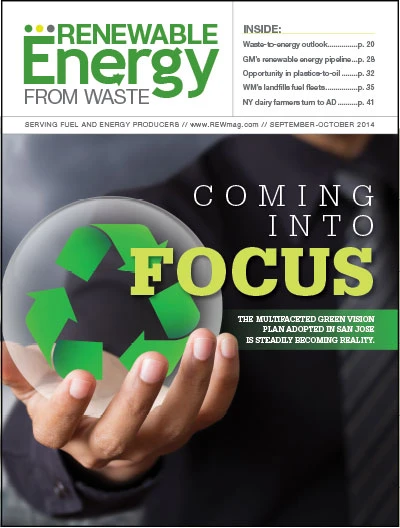
A growing number of companies are interested in thermo-chemically converting plastic scrap into valuable oils, fuels or cosmetics. While these advanced conversion technologies have been embraced by some, others wonder if industrial technologies designed to use plastic feedstock could affect poor performance in recycling programs. Although an abundance of nonrecyclable plastics are available in residuals from material processing facilities, an unfounded fear is that advanced conversion technologies will drive up the cost for plastic materials and squeeze recycling markets. Several studies have shown that the integration of a waste-to-energy (WTE) or advanced conversion technology do not harm the ability to implement successful recycling programs in communities.* Rather, WTE developments bring citizens to take a closer look at their waste and recycling choices, and create opportunities to improve recycling and diversion from landfill.
Communities are very picky about the products they accept as recyclable. Source-separated bottles, jugs, tubs and other plastics are common. Now, think about the small fraction of residents that actually throw plastics into recycling bins and follow the seemingly ever-changing recycling procedures their communities’ recycling managers establish. Bottom line: the total amount of recycled plastics is only a small portion of the total plastic waste stream ending up with other waste destined for processing or disposal. Even taking into account the significant amount of plastics that end up in the waste stream, few of them could be recycled even if they were recovered. A study done by Columbia University’s Earth Engineering Center estimates in New York City, the ratio of recyclable plastics to nonrecyclable plastics in the waste stream was one to five. Needless to say, we have an enormous amount of plastic that is destined for landfill disposal to be buried, along with its potential chemical (and as a reminder, renewable) energy.
The vast majority of plastics—films, bags, Styrofoam, unmarked plastics, mixed plastics, blister packs, broken composite materials, caps and lids and many others—are not traditionally recyclable. While some can be creatively repurposed into products, and items like films and bags can be collected or dropped off for recycling at most supermarkets and dry cleaners, the majority of plastics don’t have a home in today’s recycling infrastructure.
As consumers, we can maximize recycling of plastics by pushing regulators to support and develop recycling markets, purchasing recycled products and actively engaging in recycling programs as all exemplary citizens do. Those in public office can maximize recycling of plastic by developing producer responsibility policy, creating targeted education and outreach programs, optimizing recycling collection and setting up drop-off programs. Yet, numbers don’t lie, and even the most exceptional recycling will be able to divert only about 20 percent of the total plastics from landfill because only 20 percent are considered recyclable. The remaining 80 percent in the rest of the garbage should be used as a high-energy feedstock for conversion technologies, such as those discussed in this issue. With proper treatment, nonrecyclable plastics can be used to become valuable energy, liquid fuels, oils, chemicals and other products that contribute to domestic manufacturing and displace fossil fuel-derived products.
“There is a great future in plastics. Think about it. Will you think about it?”**
*Eileen Brettler Berenyi / Governmental Advisory associates, Inc., “A Compatibility Study: Recycling and Waste to Energy Work in Concert, May 2014 Update.” **The Graduate, 1967. “One Word: Plastics” www.youtube.com/watch?v=PSxihhBzCjk
Harvey Gershman is president of Gershman, Brickner & Bratton Inc., solid waste management consultants, hgershman@gbbinc.com. Research assistance provided by Eric Weiss, consultant I, and Elizabeth Rice, senior consultant, at GBB.

Explore the October 2014 Issue
Check out more from this issue and find your next story to read.
Latest from Waste Today
- Louisiana city launches glass recycling program
- City eWaste, Williamson County, Tennessee, offer electronics recycling stations
- Casella commits $1.5M to launch circular economy center at the University of Vermont
- Mavitec Green Energy expands in US market
- Eagle Dumpster Rental identifies its MRF-unfriendly items
- American Securities acquires Integrated Global Services Inc.
- Fleetio integrates Maintenance Shop Network add-in
- 3rd Eye expands suite of fleet safety solutions





